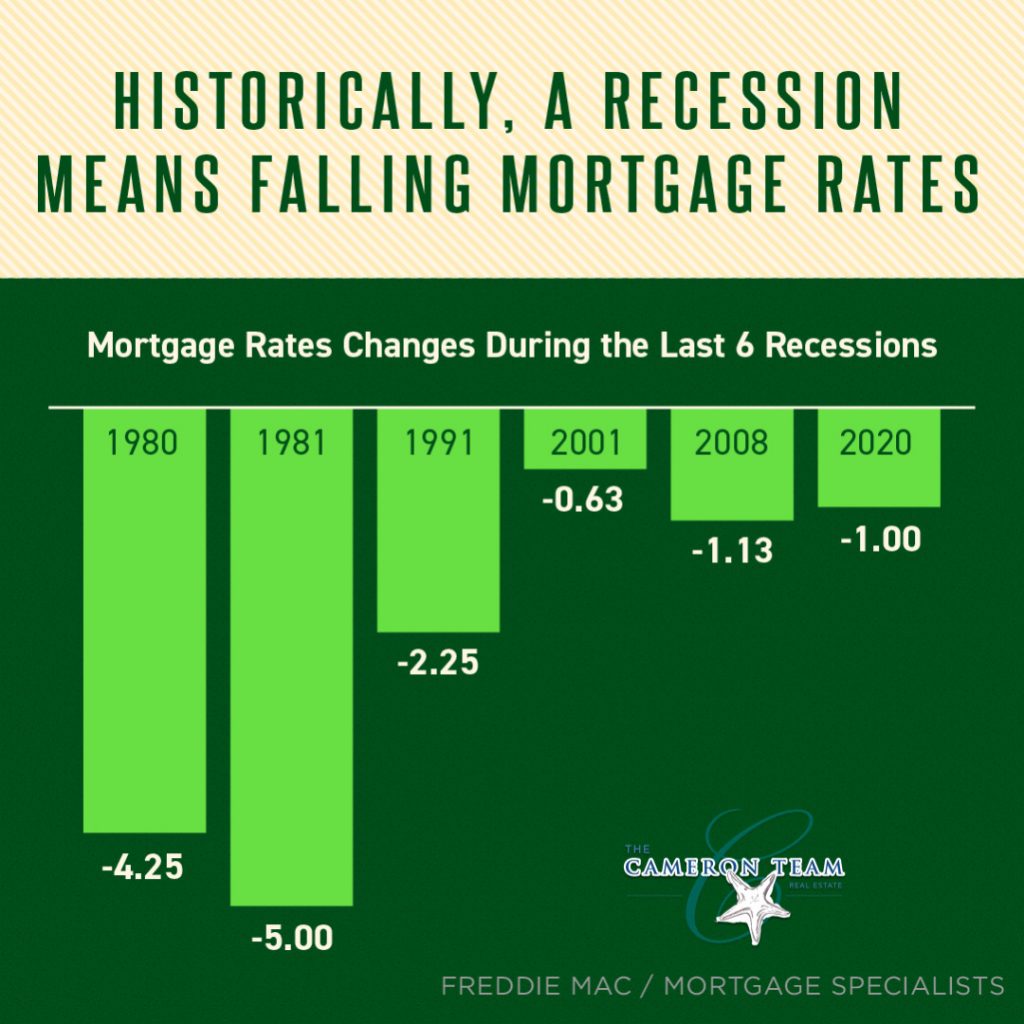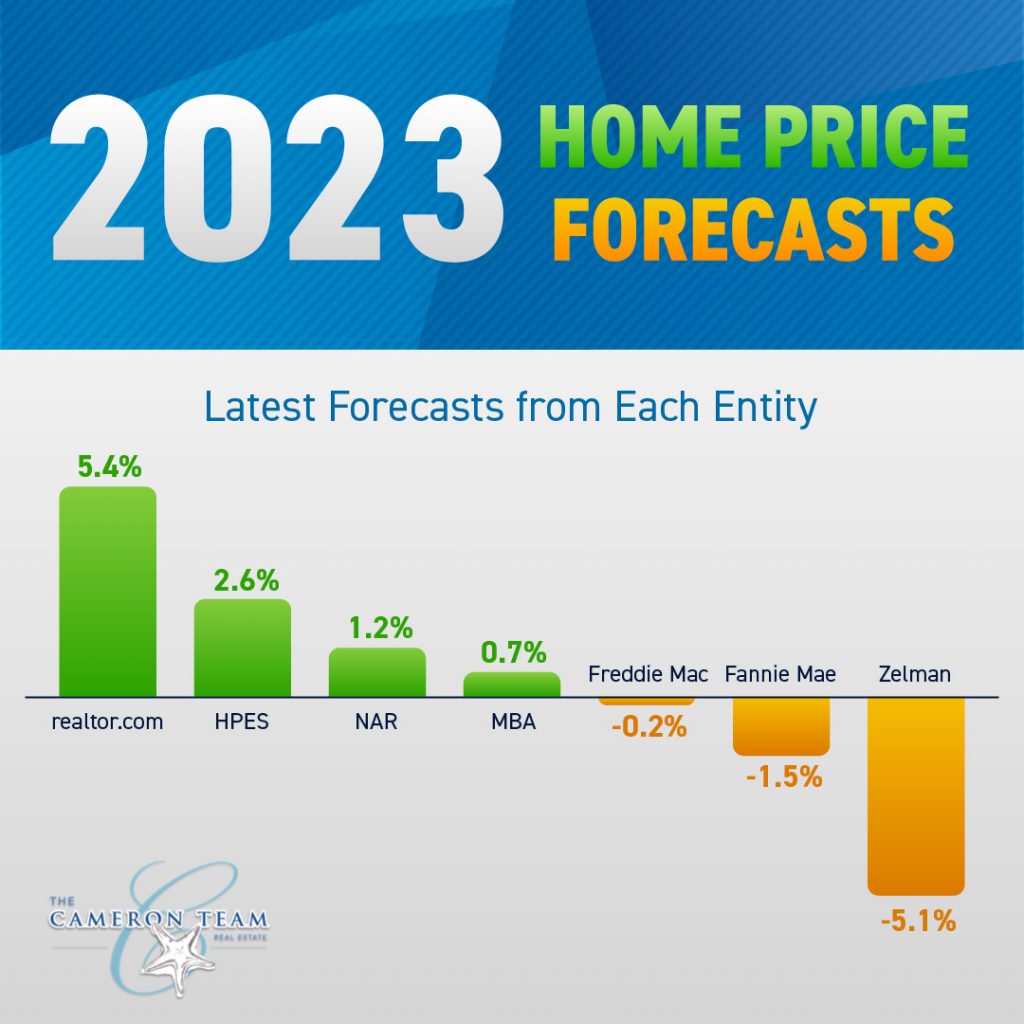Over the past 2 years, we’ve seen the real estate market heat up to levels unheard of since before The Great Recession of 2008. Homes were selling within hours of being listed and buyers were finding themselves in multiple bidding wars. When inflation reared its ugly head, investors left the market, sales slowed, and more homes came (and stayed) on the market. It seemed that the average buyer would get a reprieve as competition decreased. Then, interest rates started to rise. They quickly went from 3% to 8%, cooling the demand for mortgages. They’ve since decreased a little, but with fewer buyers showing interest, price reductions popped up left and right, leaving many homeowners questioning the value of their properties.
Now, we have a national real estate market with more homes to choose from, but higher interest rates and an uncertain future economy. People who didn’t make the leap or couldn’t secure a home during the hot real estate market are now wondering if they should still purchase a home or wait.
For a few moments, let’s put aside the sensational headlines of the media news outlets and focus on the overall picture that will help you, a buyer, decide if now is a good time to buy a home.
Real Estate is a Local Matter
The United States real estate market is made up of many smaller, regional markets. While people are constantly moving from one state to another, to say a real estate market in one city is in a steep decline so all of them must be in a steep decline is poor thinking. Each region of the United States is influenced by different economic and lifestyle factors that can cause it to be more or less appealing to different buyers. So, while the whole nation may be hit by inflation, not all regions will be hit as hard.
Wilmington and Southeastern North Carolina has for a long time been a vacation and retirement destination. The market had a well-established selling cycle, and we could predict its ebb and flow as consistently as we do the ocean’s tides. But when the pandemic hit, more people started to work from home. They realized if they were working from home, their home could be anywhere. Buyers who would have normally had to wait until retirement to move decided to come to Wilmington ahead of schedule. Our slow months got busy and there was no ebb and flow as there once was.
Now that the pandemic is over and both interest rates and inventory have risen, we are still seeing sales, but at a pace closer to the pre-pandemic years. There aren’t as many multiple-offer situations, the inventory is steadily rising, and the homes that are in good condition and priced fairly are still selling (just not in hours).
Speaking with real estate agents in other areas of the country, we know other real estate markets have taken a harder downturn, but our coastal area is still very much appealing to buyers. So, whatever choice you make, do it according to your local market, not national headlines.
Interest Rates Are Not as Bad as They Seem
Rates during the pandemic were at historic lows and many buyers were getting mortgages with 3% interest rates. It was great for anyone who was able to qualify. However, Freddie Mac’s data tracking shows the fixed interest rate of 30-year mortgages between April 1971 and October 2022 is about 7.76%, so the interest rates we are seeing right now are close to average. And just be thankful that it’s not the ‘80s, when interest rates were in the double digits.
Will interest rates change? It’s possible. The economy is still working itself out and if the country is affected by a recession, historically that has led to lower interest rates. Be assured that if you choose to purchase a home now, you aren’t getting the horrible interest rate some media outlets want you to think you are.
Sellers are More Willing to Help with Closing Costs
One of the first signs that the real estate market was shifting was when we started to see builders offering more buyer incentives to help with closing costs and mortgage buydowns. During the pandemic, the prices of materials rose, and builders stopped making promises for what they could deliver in way of pricing, finishes, etc. Many stopped presales and started selling only homes that were near the end of their building timeline, because it was the only way they could guarantee they wouldn’t lose money from a sudden shift in material pricing during the many months it takes to build a home. Because there was such a high demand for new homes, builders were confident they could sell what they built, so investing without having a contract in place wasn’t a huge leap for them. But now that there are fewer buyers, builders are offering more incentives to keep offers coming in.
During the past 2 years, we frequently saw buyers opt out of inspections and appraisals (when paying cash) in order to make their offer more appealing to home sellers, but much of that has gone away. According to a Realtor.com survey, the average home seller is more willing to help buyers in way of closing costs, flexible scheduling, and repairs. However, keep in mind that lenders do put in place limits on how much the seller can pay before the buyer can no longer qualify for their loan.
Whether you’re buying new construction or a resale, you may find there is wiggle room in negotiations.
Home Prices are Up Year-Over-Year
While home prices are decreasing month-to-month as the economy settles, home prices are still up year-over-year. While we can no longer say we have the 20% appreciation we saw at the beginning of 2022, it’s still up 10% nationally. That is a significant increase from the normal 3%-4% we usually see.
Real estate experts are expecting a slight appreciation or a slight depreciation in 2023 as the market moderates. Low inventory and rising rents are expected to be a driving force for the coming new year. If you plan on living in your new home long-term, a small depreciation in the next year will likely not have a significant effect on your equity, because home prices overall tend to trend upward. Since 1991, home prices in North Carolina appreciated 294%, which is above the national average.
If you plan to purchase a home and only live in it a few years, you may want to wait until the real estate market completes this correction or you may end up selling at a loss.
Rent Increases are Outpacing Wage Increases
2022 saw significant increases in rent, and they are only expected to increase in 2023 as investors adjust their pricing for inflation. According to a study completed by Zillow, rent increases are outpacing wage increases. Depending on the local market and individual circumstances, it may be more cost-effective to purchase a home than rent one. Purchasing not only eliminates any extra padding a landlord may add to the monthly rental payment, but it also allows the new homeowner to build their own wealth through equity, which can later be used for retirement or funding other investments.
Should You Buy a Home Now?
Local real estate market trends, buyer incentives, and your personal finances and long-term plans all determine if now is a good time for you to purchase a home. Talking to a lender and a Realtor can provide quality insight into your options, including any special programs and builder incentives that may be available. If you’re thinking about purchasing a home in the greater Wilmington area, we are happy to talk it through with you. Please feel welcome to reach out at any time. We can discuss what we are seeing in the current market and connect you with local lenders that have provided our clients quality service.






